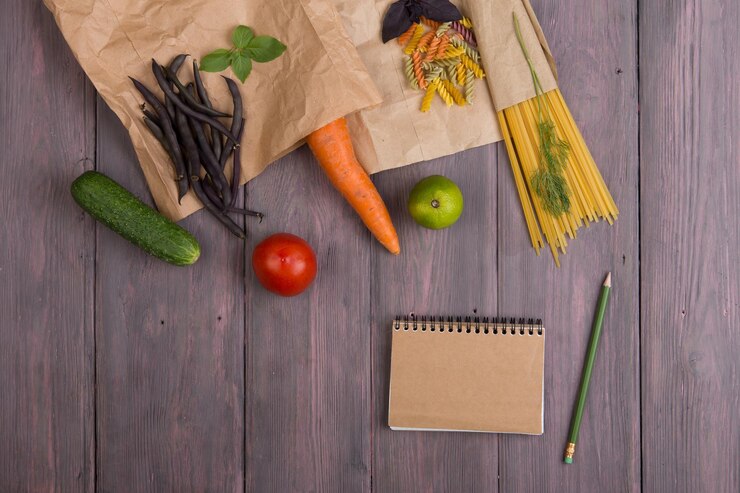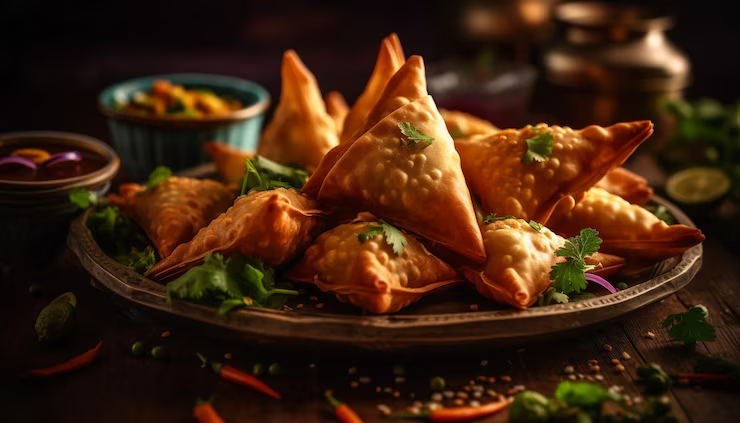Contents
- 1 Smart Ways to Save Money While Grocery Shopping
- 2 Plan Ahead and Shop Smart
- 2.1 FAQs About Saving on Groceries
- 2.2 What are the best ways to start saving money on food?
- 2.3 Is it really cheaper to buy groceries online?
- 2.4 Do local markets help you save money?
- 2.5 How can I stop wasting food and money at home?
- 2.6 What grocery items are better to buy in large quantities?
- 2.7 Do loyalty points and cashback apps really help?
- 2.8 Is it possible to make simple things at home, like ghee and paneer?
- 2.9 Related Articles
Smart Ways to Save Money While Grocery Shopping
Have you ever gone into a store for “a few things” and come out with a big bill? That’s more common than you might think. If you’re not careful about how, where, and when you shop, grocery shopping can slowly eat away at your budget without you even realizing it. But you can save more than you think by making just a few small changes to your daily routine.
Plan Ahead and Shop Smart
The best way to save money is to plan ahead. Making a meal plan for the week helps you stay on track. Make a list of everything you need and stick to it while you shop. This not only saves money, but it also stops you from making last-minute purchases that add up.
You can use free tools like Notion Grocery Planner or even just Google Keep notes. A magnetic whiteboard on your fridge can help you see what you need each week if you like more traditional ways.
Not only is shopping online easy, it’s also smart. Grocery websites often have short-term sales, coupons, and cash-back deals that you might not see in stores. Look at sites like BigBasket, Zepto, and Amazon Pantry.
Many grocery stores now sell their own brands of things like lentils, spices, and cleaning supplies. These items are often just as good as national brands, but they cost 20–30% less. For instance, Vedaka, an Amazon Brand, sells everyday items like rice, dals, and oils at much lower prices than name-brand items, but the quality is still the same.
Buying grains, flours, and pulses in bulk can save you a lot of money, especially if you buy them from a wholesale or local market. But only buy things that you will really use in the next month or two. Buying too much leads to waste, and spoiled food means wasted money. Use sealed containers like the Cello Checkers Plastic Jar Set to keep bulk items fresh longer and keep bugs away.
A lot of people lose money not because they spend too much, but because they waste it. Make sure to check the expiration dates on dairy, snacks, and sauces. Put older things where you can see them and use them first so they don’t go bad without you knowing. Apps like Pantry Check can help you keep track of expiration dates and even let you know when it’s time to use something.
It might sound silly, but studies and real life show that shopping when you’re hungry makes you buy more things on a whim. Before you go grocery shopping or place an order online, always eat a small snack. It really does help you stick to your list.
A lot of digital payment apps now give you cash back when you buy groceries. Paytm, PhonePe, and Cred Pay are some apps that often have grocery cashback deals or partner offers that only last for a short time. You should also see if your regular grocery store has a loyalty card. Some stores let you earn points that you can use to buy things later.
You can save more than you think by buying fruits and vegetables that are in season. For instance, buying mangoes in the summer is cheap, but buying them in October will cost twice as much and taste a lot worse. You can also freeze or make pickles, jams, or chutneys to keep seasonal fruits and vegetables fresh.
Local vendors often have better prices on fresh fruits and vegetables than grocery stores. And if you go to the same store often, the owners may even give you discounts or let you try things before you buy them.
Packaged snacks look good and are easy to eat, but they are one of the most expensive per gram. A pack of roasted peanuts or homemade trail mix for ₹60, on the other hand, gives you a lot more and is better for you. Air-popped popcorn is a cheap snack you can make at home, or you can buy roasted chana.
Some things are surprisingly simple to make at home. You can make ghee, paneer, spice mixes, and even snacks like namkeen or rava laddoo with things you already buy, and they will cost a lot less. Making ghee at home from malai, for instance, saves you almost ₹150 for every half kg. You can find quick guides for making simple staples at home on YouTube channels like Hebbars Kitchen.
When pantries are messy, people buy things twice. You forget that you already have five packs of biscuits or two packets of dal. A 5-minute check every week helps you keep track of what you have and stops you from buying things you don’t need. Use clear jars or labels so you can see them better.
FAQs About Saving on Groceries
What are the best ways to start saving money on food?
Make a strict shopping list and a weekly meal plan to get started. When you shop, stick to it. Instead of well-known brands, buy store brands. Don’t shop when you’re hungry, and always check prices on different sites like Amazon Pantry, BigBasket, and Zepto.
Is it really cheaper to buy groceries online?
Yes, a lot of the time. Many online stores have time-limited deals, combo deals, or cash back through apps like Paytm or PhonePe. You can also easily compare prices without having to go to different stores.
Do local markets help you save money?
Yes, local stores often have lower prices on fresh herbs, fruits, and vegetables. You can also haggle or get small things for free, like curry leaves.
How can I stop wasting food and money at home?
Check the expiration dates every week and keep your pantry neat. Store food in clear containers and use older things first. Don’t buy too much; only get what you can use in the next two to three weeks.
What grocery items are better to buy in large quantities?
Buying staples like rice, dal, flour, sugar, and cooking oils in bulk is usually cheaper. Just make sure you store them in airtight containers.
Do loyalty points and cashback apps really help?
Yes. Cashback apps and loyalty points help a lot of shoppers save hundreds of rupees a month. Apps like Cred Pay, PhonePe, and Paytm often give you instant rewards or money-back deals.
Is it possible to make simple things at home, like ghee and paneer?
Without a doubt. It’s easy to make ghee, paneer, and snacks at home, and they often cost a lot less. You can find recipes on YouTube channels like Hebbars Kitchen.
Disclaimer:
This content is only meant to give you information. Prices and deals may change depending on where you are, what store you go to, or when you buy. Before making any financial decisions, please check all the information on the appropriate websites.





